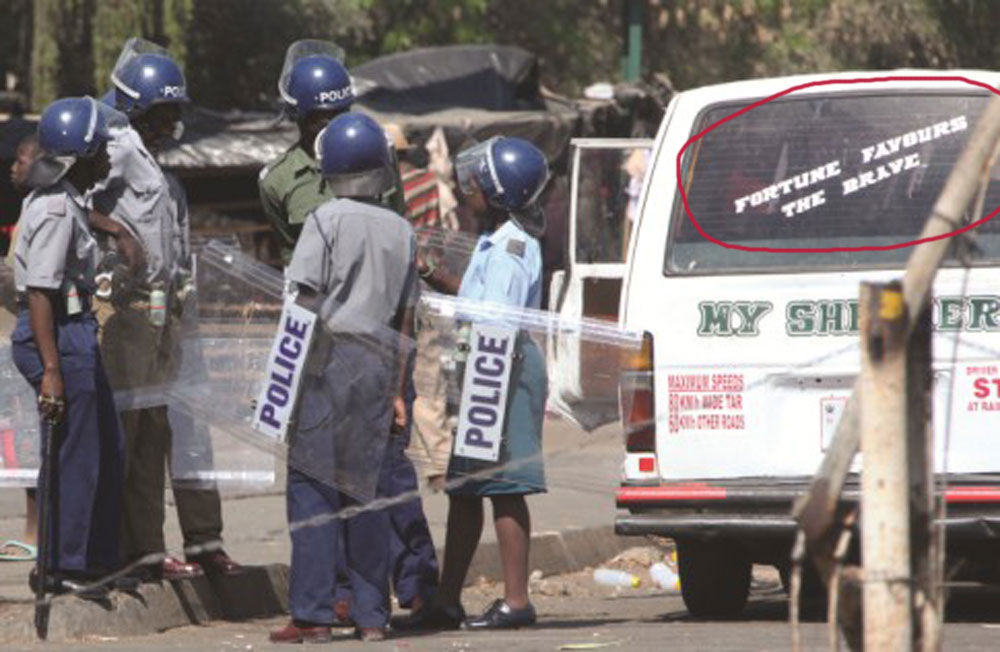
Yesterday we carried a front-page story with the headline Harare unleashes security forces on kombis, in an all-too-familiar pattern of crisis management-style response.
NewsDay Editorial
The report was to the effect that Harare City Council had roped in the Joint Operations Command (JOC) to help restore order in the capital city in the face of unending wars on the streets between municipal authorities and commuter omnibus crews and illegal vendors, and increasing crime.
In making the official announcement, we only heard two voices: That of town clerk Tendai Mahachi and Police Officer Commanding Harare Province, Senior Assistant Commissioner Clemence Munoriarwa.
Where was the mayor? Has he and his councillors been deliberately sidelined? Or did Mahachi have the mayor’s authorisation?
JOC, for those not in the know, is comprised of the Zimbabwe Republic Police, Zimbabwe Defence Forces, Zimbabwe Prisons and Correctional Services and the Central Intelligence Organisation.
While no one disputes that order must be maintained, it is the roping-in of JOC which raises questions because of the high likelihood of infusing heavy-handedness by making this a quasi-military operation.
Memories are still bitter and fresh from the tragedy caused by the slum clearance codenamed Operation Murambatsvina in 2005 which was led by the military through sheer force without taking into account the socio-economic impact, leaving hundreds of thousands of people countrywide without shelter and livelihoods.
- Chamisa under fire over US$120K donation
- Mavhunga puts DeMbare into Chibuku quarterfinals
- Pension funds bet on Cabora Bassa oilfields
- Councils defy govt fire tender directive
Keep Reading
There was no human element in that raw force was unleashed. Now a repeat appears imminent and one wonders: Who, if any, advises the authorities?
Do they consult stakeholders or just decide on their own what they think is the best course?
From the outset, it must be pointed out that most of these problems are self-inflicted mainly because of political corruption.
There has been no accountability because the persons running Harare are not elected, many of them having been rejected at the polls, but still wielding highly disproportionate influence because of government complicity.
Thus, they are not answerable to anyone except their political bosses, who happen to be Zanu PF.
All things being equal, what is needed is an administrative problem-solving approach by professionals duly employed to run Harare Municipality on a day-to-day basis.
But we all know Harare has been turned into an administrative jungle by politicians, and chaos hits you in the face every which way you turn.
Policymakers, in the form of the duly elected councillors, have been completely sidelined because they happen to belong to the opposition. This political spitefulness is the greatest single cause of the chaos Harare has been thrown into.
The racketeering at Mbare where party functionaries are collecting and pocketing as much as $4 000 daily from buses for parking is a case in point. Another one is that as many as half the kombis plying city routes are actually owned by police officers, so how can people who are part of the problem be part of the solution?
Another dangerous development is that in this clampdown they also want to include political parties. This can only mean more victimisation of opposition political parties under the guise of maintaining order; and free rein to Zanu PF to do as they wish. We cannot have repression through the backdoor.
What is needed is to respect governance at any level, from the top to the bottom, from crèche to central government. In this particular case, they should respect governance at local level – not impose a State military solution.











